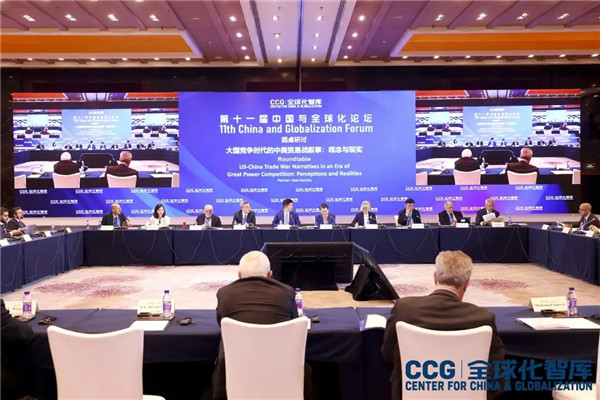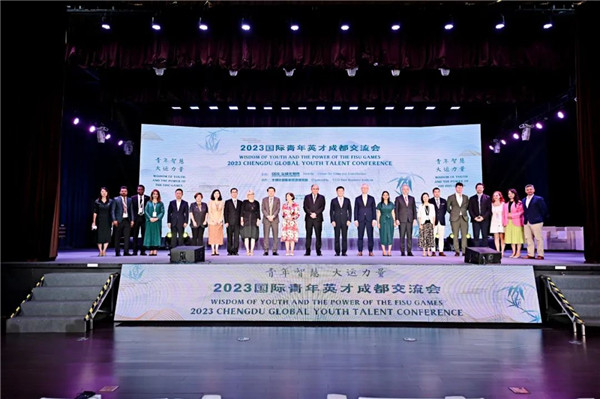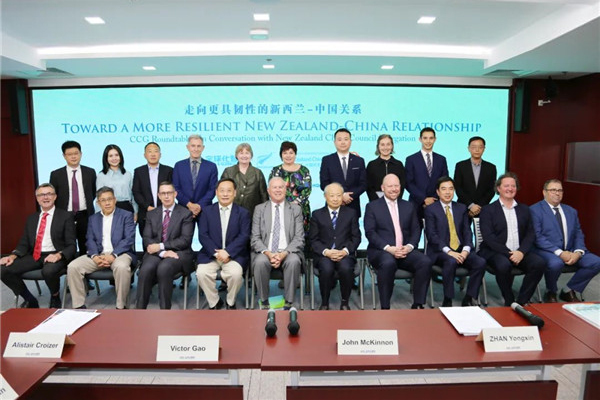CCG Webinar | China-US non-governmental anti-pandemic cooperation
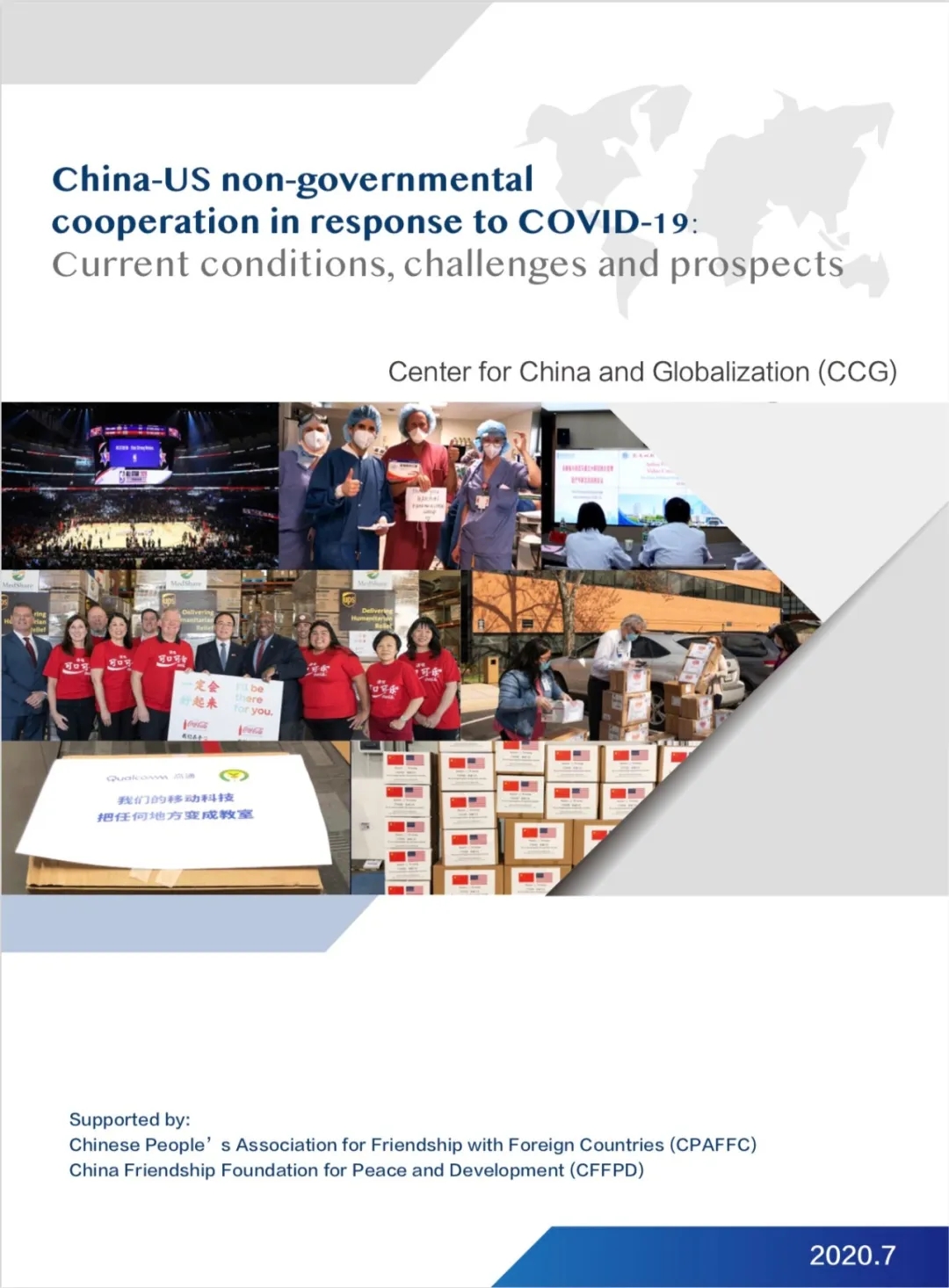
On July 6, the Center for China and Globalization (CCG) held an online forum to release the report China-US non-governmental cooperation in response to COVID-19: Current conditions, challenges and prospects at its Beijing headquarters.
With abundant data and vivid cases, the report fully displays the practice and results of China-US non-governmental cooperation in various fields in response to COVID-19. It aims to promote non-governmental sectors in China and the US to play a greater role in anti-pandemic efforts, and contribute insights to strengthen non-governmental cooperation between China and the US to accelerate epidemic control, world economic recovery, global governance innovation, and jointly promote the sustainable development of human society.
CCG President Wang Huiyaoand Shen Xin, director-general of the Department of American Affairs of CPAFFC, gave opening remarks. CCG Secretary-General Miao Lu introduced the report. Representatives from many fields, including medicine, non-governmental organizations, international chambers of commerce, and the business community joined the discussion.
Enduring friendship between Chinese and American people
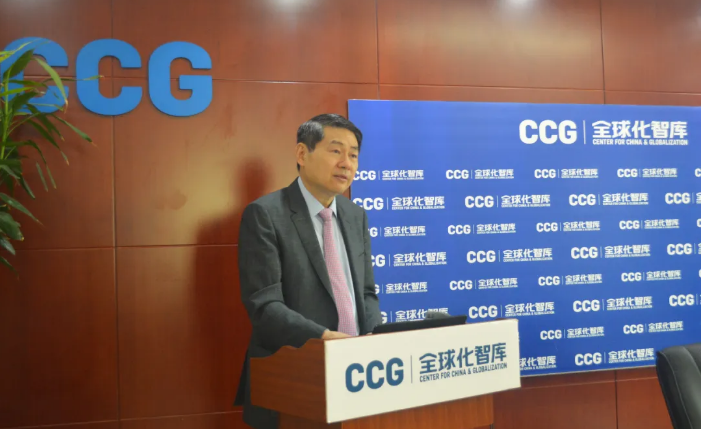
CCG President Wang Huiyao said in his speech that global cooperation is the only way to combat COVID-19. As the two largest economies in the world, China and the United States complement each other’s strengths, and are also in different stages of dealing with the pandemic. Advancing China-US cooperation in the fight against COVID-19 will not only help ease the pandemic situation in the United States, but is also key to strengthen global anti-pandemic cooperation. In the era of growing globalization, the community with a shared future for humankind is more than just a concept, but also a living reality. No country around the world is immune to the global crisis caused by the pandemic. China-US relations face some challenges, but the non-governmental exchanges between the two countries have a profound social foundation. Nothing can stand in the way of friendship between Chinese and American people.
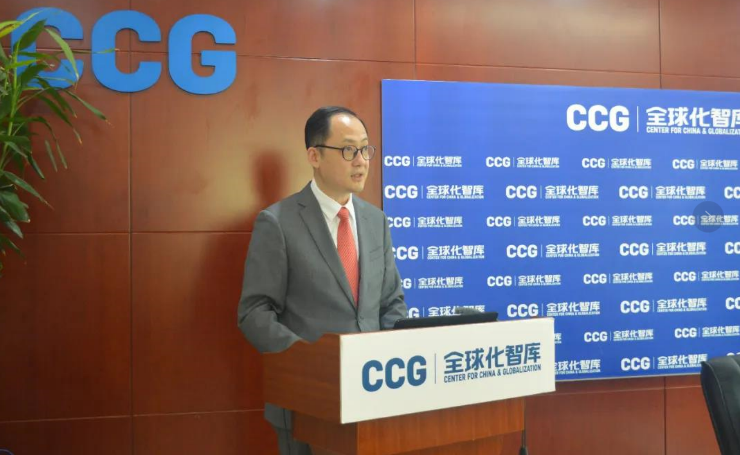
Director-General of the Department of American Affairs of CPAFFC Shen Xin pointed out that the spread of ‘decoupling’ and the ‘political virus’ over the past few months has added uncertainty to China-US relations. Local governments, businesses, social organizations and ordinary people in the United States have given a helping hand in various forms after the pandemic outbreak in China. The National Committee on US-China Relations, the US-China Business Council and other organizations instantly donated nearly US $830,000 worth of medical equipment to Hubei Province. When the United States was hit by the pandemic, Chinese groups also actively carried out various support actions. According to incomplete statistics from CPAFFC, local governments in China have donated about 2 million masks, 12,500 protective suits, 30,000 pairs of goggles and some other anti-pandemic materials to their US counterparts, and held 18 anti-pandemic video conferences. Many Chinese non-governmental public welfare organizations, including the Jack Ma Foundation, have also donated large quantities of materials to help the United States get through.

CCG Secretary-General Miao Lu introduced the report. She stressed that China-US non-governmental forces play an important role in global cooperation against COVID-19. Against the backdrop of tense political relations between the two countries, friendly exchanges between the Chinese and American people during the anti-pandemic cooperation sowed a seed of strong vitality for the improvement and development of China-US relations. She pointed out that both China and the United States value, promote and practice the humanitarian spirit despite cultural differences; there is broad space for cooperation in tackling the global crisis. In the face of such a severe global challenge, both China and the United States need to overcome prejudice, join hand in hand to conquer the virus, and to promote global economic recovery and growth for the common well-being of human society.
Experts call for strengthening China-US non-governmental cooperation against COVID-19
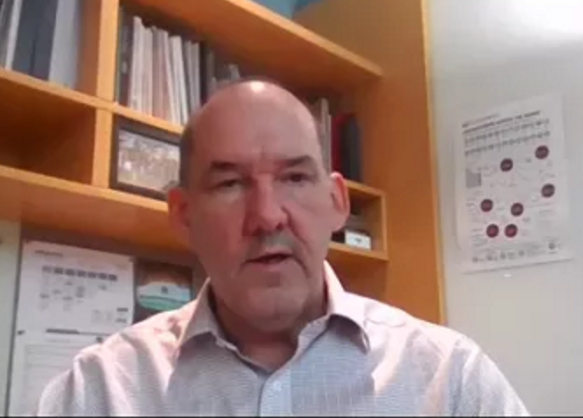
President of the American Chamber of Commerce in China (AmCham China) Alan Beebe said that AmCham member companies have provided substantial supplies and financial assistance to China at the early stage of pandemic outbreak. Thereafter, AmCham China has cooperated with the Chinese government in resuming work and production. He also acknowledged the policy contribution of local governments to the recovery. He proposed four suggestions, aiming at the existing difficulties during China-US non-governmental cooperation against the COVID-19: all countries should 1) be well-prepared to respond to long-term existence of the pandemic; 2) coordinate and unify standards, increase the flow of materials, necessary personnel and financial capital; 3) ensure openness and transparency of information; and 4) coordinate the interests of government, local and private sectors to eliminate the negative impact of politicizing the pandemic.
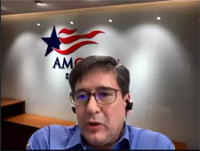
President of the American Chamber of Commerce in Shanghai (AmCham Shanghai) Ker Gibbs said that AmCham Shanghai has worked actively and effectively with local governments in both China and the United States, serving as an information sharing platform to provide accurate and up-to-date information to members. In addition, he pointed out that America’s response on the national level was rather disappointing, compared with the high level of coordination in China. Thus, he suggested that China and the United States should recognize as soon as possible that COVID-19 is a challenge to all of humankind, and should stop blaming each other and cooperate.

Professor and Dean of School of Public Health, Peking Union Medical College (PUMC) Liu Yuanli said that he established a policy research team and organized and participated in more than 1000 international online seminars. He stressed that interactions between scientists and policymakers take place every day in China; a truly evidence-based policymaking process is the right way to fight the COVID-19. But in the United States, the fight against the COVID-19 has been entangled with politics, and the opinions and participation of many scientists were not appreciated.

Member of Duke Kunshan Advisory Board Dede Nickerson pointed out that China-US non-governmental anti-pandemic cooperation has played a significant role at a time when intergovernmental cooperation has been ineffective. Rather, it is company-to-company and people-to-people cooperation that has pushed anti-pandemic efforts forward. She said that there will be great uncertainties and upheaval in China-US relations before a vaccine is developed. Therefore, non-governmental organizations and individuals need to promote cooperation and inspire people to get things back on track.
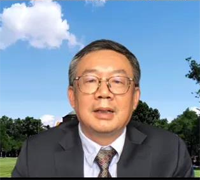
Director of Center for Chinese Entrepreneur Studies, Tsinghua University Long Denggao said that Chinese in the United States have made irreplaceable contributions to China-US non-governmental anti-pandemic efforts. He held that national protectionism does no good in the fight against the pandemic. The Chinese in the United States are a key channel for China-US communication and an important way to avoid China-US ‘decoupling.’ He hoped that Chinese people in the United States can continue to play an important role in promoting China-US cooperation against COVID-19 and post-pandemic economic recovery as well.
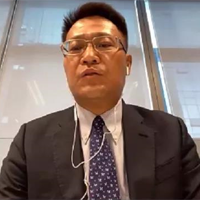
Vice President of Qualcomm Guo Tao summarized the core ideas of the report as ‘the virus knows no borders; science, kindness and cooperation know no borders too.’ He said the report is conducive to enhancing cooperation and mutual trust between China and the United States. China-US cooperation cannot be achieved without the help of think tanks and industry associations. He suggested that think tanks and industry associations of the two countries conduct more online cooperation and expand cooperation into more areas.
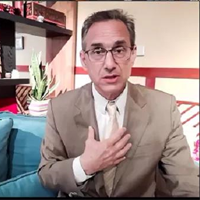
CEO of M Communications Group and CCG non-resident Senior Fellow Mario Cavolo said that political attacks must be avoided in the fight against COVID-19. AmCham China have done a great job in this regard. The United States should recognize China’s anti-pandemic achievement. This owed a lot to China’s unique political and social structure as well as its emphasis on social security and stability in its Five-Year Plan. He added that American society values individual freedom, but the pandemic has proved that social security and stability is a prerequisite for freedom. No one likes being kept in isolation, but this is the social responsibility one should undertake for people’s security and safety.
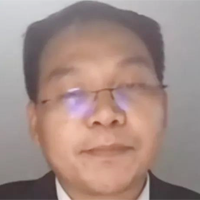
Hematologist of Renmin Hospital of Wuhan University Ye Baixin said that friendly mutual assistance between China and the United States during the COVID-19 crisis is just like a bond linking the hearts of the two peoples. The positive exchanges and cooperation between the two peoples have laid a solid foundation for friendly exchanges between the two countries. He stressed that Wuhan’s anti-pandemic experience has proved that scientific attitude and collective efforts are key to defeat the pandemic. If China and the United States join hands and engage in global cooperation, the COVID-19 pandemic around the world will be brought under control; China-US relations will tend towards brighter prospects, and the world economic outlook will be more positive.
